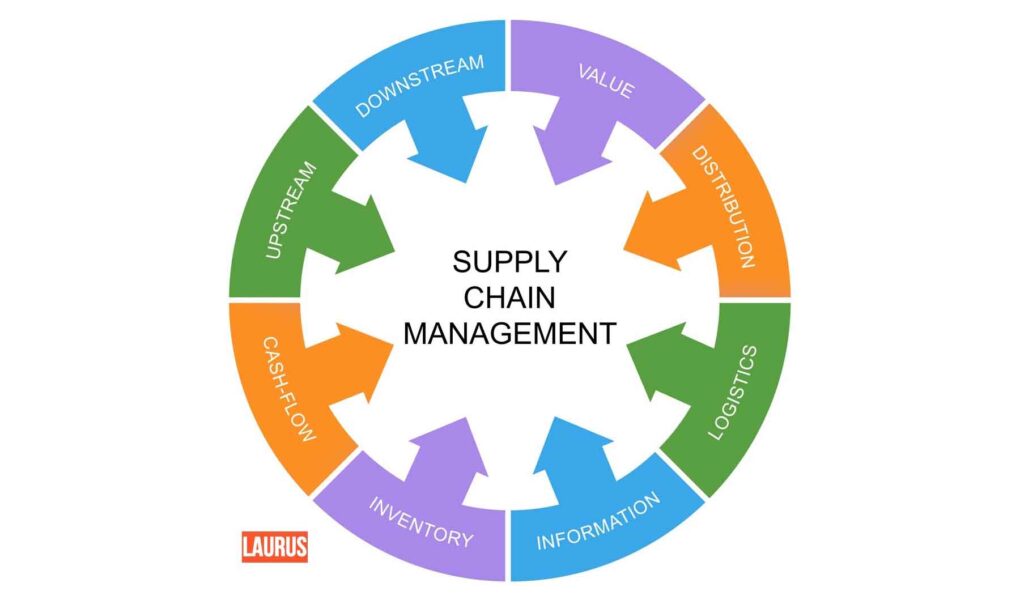Every retail organisation has a supply chain, so this is an area where there are multiple employment opportunities.
With the year-on-year growth of online retail sales showing no signs of slowing down-and an increasing number of customers demanding rapid delivery of their purchases – employers are on the lookout for skilled logistics and supply chain graduates to fill various roles.
Distribution managers have always played a vital role in the retail industry’s success, ensuring the effective organisation, storage, and distribution of products and purchases.
‘The importance of logistics and supply chain management has grown significantly,’ says the course director of the Logistics and Supply Chain Management diploma course at The Laurus Institute for Logistics Training and Human Resource. ‘In any industry, goods need to be procured, stored and dispatched. Efficient and effective management of all these business functions is critical in the current business world.
‘Someone equipped with comprehensive and integrated knowledge of logistics is a strong candidate in the job market.’ The career opportunities afforded to graduates are a massive draw. Every retail organisation has a supply chain, so this is an area where there are multiple employment opportunities. ‘In the retail sector, perfect order deliveries, customer responsiveness and cost efficiency are key competitive priorities,’ ‘It comes as no surprise then that logistics and supply chain management are critical competence areas that contribute to satisfying customer demand in a timely and cost-efficient manner.
‘Delivering products/services at the right time and place, right cost, and at the right quantity and quality is at the heart of logistics and supply chain management.’
What qualifications do I need?
Logistics and distribution/supply chain manager jobs are open to all graduates. However, you’ll find that more and more employers seek graduates with a specific degree in logistics, transport or supply chain management. With the demand for more highly-skilled graduates rising there are a variety of related postgraduate courses on offer to meet this need.
One such course is the: Diploma In Logistics & Supply Chain Management.
If you’re looking for an alternative to university, you can always study for a logistics or supply chain apprenticeship. Logistics operations apprenticeships are available at intermediate and advanced levels and lead to careers as logistics operatives and operations leaders/supervisors. Supply chain management schemes are available at an advanced and higher level, resulting in careers in supply chain management, supply chain control, and international procurement management.
What skills do I need?
People with inquisitiveness and a desire to understand patterns and trends within data are seen as particularly employable. Simulation, modelling, forecasting, problem solving and negotiation skills are extremely useful, as is the ability to think on your feet when under pressure.
Successful candidates need to be able to understand the increasingly complex technical aspects of supply chains and be able to communicate these to non-technical colleagues and customers clearly and succinctly. Graduates who have grown up in the age of the internet will be well placed to understand the dynamics of internet shopping and to contribute to the growth of e-retailing. Additionally, language skills may be an advantage when working in global networks. For an idea of in-demand soft skills, see what skills do employers want?
If you have your sights set on a career in logistics or supply chain management, you need to be committed to continuing professional development (CPD). Lifelong learning is an increasing feature of this field. You’ll be expected to develop your knowledge and skills throughout your career by participating in training courses, presenting at conferences, and attending networking events.
What jobs can I go into?
Upon graduation, logistics and supply chain jobs are plentiful and varied. There are both tactical and strategic roles on offer, and you’ll likely gain an overview of the profession before specialising – and then progressing to more senior positions.
Employers include third-party logistics companies, organisations that sell directly to consumers (retailers and supermarkets) and logistics consultancies. Jobs within logistics and supply chains can consist of logistics and distribution managers, purchasing managers or warehouse managers.
Graduates can also pursue a career in the following areas:
- supply chain design and planning
- procurement and supply management
- freight transportation
- warehouse design and management
- distribution network design and planning
- inventory management and control.
To catch the attention of employers, you’ll need to show some experience of logistics and supply chains, either through previous or part-time work in the retail sector, industrial placements on your course, or through internships and work experience. Demonstrating strong commercial awareness and knowledge of the company will also stand you in good stead. Enthusiasm and attention to detail will also set you apart from the competition.
For more details, visit: https://laurus.org.in/




